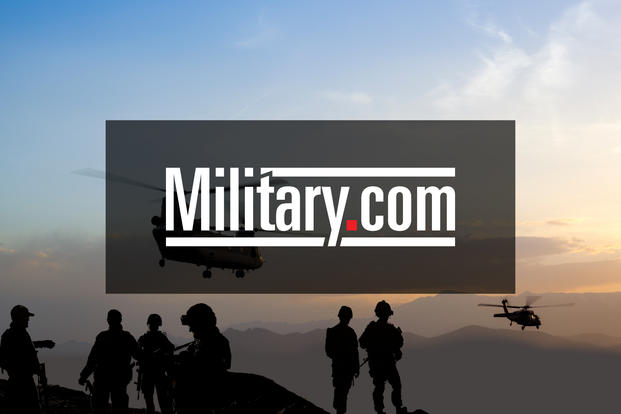U.S. special operations advisers are moving quickly to get new arms and ammunition into the hands of the Kurdish YPG in Syria despite renewed demands from NATO ally Turkey to break the deal approved by President Donald Trump, a U.S. military spokesman said Wednesday.
Trump signed off Monday on arming the YPG, or People's Protection Units; the Defense Department announced the authorization Tuesday; and U.S. troops Wednesday were preparing to deliver the weapons and equipment to the YPG from stockpiles already in Syria, said Air Force Col. John Dorrian.
"Some of those may have begun to be dispersed," Dorrian said, although he could not immediately confirm that arms had actually been delivered into the hands of YPG fighters.
He said the weapons being delivered were small arms, mortars, heavy machine guns and shoulder-fired weapons to stop the Vehicle Borne Improvised Explosive Devices (VBIEDS), or car bombs, that the Islamic State of Iraq and Syria has used to break up assaults.
Dorrian declined to go into the makes or models of the weapons, types of ammunition, or how many will be handed over to the YPG.
In a video conference from Baghdad to the Pentagon, Dorrian, a spokesman for Combined Joint Task Force-Operation Inherent Resolve, said U.S. troops will monitor how the YPG employs the weapons to make sure they are being used only against ISIS. "We intend to account for them and be sure they are pointed at ISIS," he said.
Turkish President Recep Tayyip Erdogan called on the U.S. to reverse the decision to arm the YPG before his expected arrival in Washington next week for talks with Trump at the White House. The talks are expected to cover the way forward in Syria's six-year-old civil war and proposals by Turkey and Russia for the creation of safe zones for civilians.
Turkey considers the YPG a terrorist group linked to the PKK, or Kurdistan Workers Party, which has carried out attacks in southeastern Turkey. However, the U.S. considers the YPG the most effective anti-ISIS force in northeastern Syria.
The YPG is partnered with the Syrian Arab Coalition under the banner of the U.S.-backed Syrian Democratic Forces. Until Trump authorized the arming of the YPG, the U.S. had maintained that arms were going only to the Syrian Arab Coalition and not the Syrian-Kurdish group.
At a news conference in Ankara on Wednesday, Erdogan, who barely won a referendum last month to increase his executive authority, said of the decision to arm the YPG, "We want to believe that our allies will prefer to side with us, not with a terrorist organization."
Turkish Prime Minister Binali Yildirim said that the U.S. action "will surely have consequences and will yield a negative result for the U.S. as well."
Despite the differences with Turkey on the YPG and other issues, "We're going to continue to work with Turkey" in the anti-ISIS campaign, Dorrian said.
In an article for Foreign Policy, James Jeffrey, a former U.S. ambassador to Turkey and Iraq, said Erdogan and the Turkish military view the YPG as "a geographical extension of its parent organization, the Turkish-Kurdish insurgent PKK," which is seen as a threat to the territorial integrity of the Turkish state.
"Now, Trump faces a possible confrontation with NATO ally Turkey -- economically and militarily the strongest state in the region, and irreplaceable in any strategy to contain Iran," said Jeffrey, a distinguished fellow at The Washington Institute for Near East Policy.
The Turkish military has repeatedly attacked the YPG in northern Syria. The YPG and Turkish forces have recently traded cross-border and artillery fire. The U.S. sent special operations teams to the area in an effort to calm the situation by their "visible presence."
Dorrian would not say whether U.S. troops are currently on the border but did say they go there "intermittently. It's something that's done on an as-needed basis."
In the video conference from Baghdad, Dorrian said the SDF is engaged in heavy fighting against ISIS for the town of Tabqa and the Tabqa Dam, which is the largest in Syria on Lake Assad and feeds into the Euphrates River about 30 miles east of Raqqa. He said about 30,000 civilians had been displaced from Tabqa in the fighting.
ISIS fighters are still holding the dam, but the U.S. has seen no signs that they intend to blow it, Dorrian said.
In Raqqa, U.S. airstrikes recently destroyed about 13 boats and barges ferrying supplies on the Euphrates, he said.
Airstrikes have also hit earth-moving equipment used to build up berms to prepare for the eventual siege of the city, the self-proclaimed ISIS capital, Dorrian said, adding that ISIS is seeking to build small earthen dams to channel the Euphrates and flood areas that might be considered avenues of approach for an attacking force.
-- Richard Sisk can be reached at Richard.Sisk@Military.com.




























